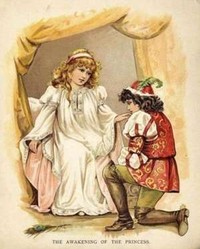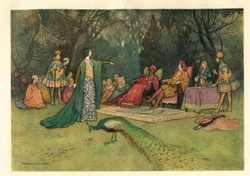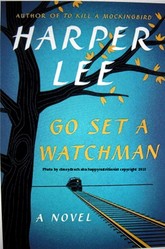In infant school, aged six, I had a Thorfinn moment. My teacher had made me pencil monitor, but I had paid scant attention. So next day when work was being allocated my body was in the classroom, but my mind was in deep space, leading star fighters in combat with an alien battle cruiser, a huge ship heavily armed with powerful death rays..Then my reverie was interrupted by a little girl who very kindly reminded me that it was my job to give out the pencils. I wandered around a bit, not knowing where they were, then the girl took pity on me. "You don't want to be pencil monitor, do you?" she asked. I said that I didn't, so she rushed to Miss McLeish, and told her that I didn't want the job and asked could she have it. So the girl became pencil monitor and I returned to commanding Star Fleet.
"He's a dreamer!" Miss McLeish told my mother. Thus when I encountered the fictional character of Thorfinn Ragnarson, who dreams through his lessons and prefers the fictional world to the real one there was an instinctive sympathy. Early in the book Thorfinn is having a history lesson about Norse expeditions through Russia, and his teacher despairs that he is looking out of the window and taking nothing in.But his mind is alert and using the lesson to make an imaginary world in which he is a participant, constructing a story out of what the teacher is saying. But he gets into trouble nonetheless.
The book begins with the line, "Of all the lazy and most useless boys ever to attend Norday school, the laziest and most useless was Thorfinn Ragnarson" No one expects anything of his career, and his father doubts that he will have much success and worries what will become of him. Everyone thinks that he is useless, though the women say that he is a nice boy. Thorfinn progresses through life,enduring the miseries of prisoner of war status in World War Two,where in his confinement he turns to writing, where his imagination is allowed to blossom and he finally finds what he can do. The book is a cry from the heart for the education system to recognize the sensitive and imaginative child and refrain from imposing a pre-determined career pattern on him/her.
Thorfinn eventually returns to the now deserted island of Norday, wed now to the dreamy and beautiful young woman who seemed to be out of his reach, and he commits himself to the work of writing the ultimate poem. He has come full circle. Not only has he returned to Norday, but to the self sufficient lifestyle of his ancestors.






 Pilgrimage. A reviewon 06/15/2025
Pilgrimage. A reviewon 06/15/2025
 Leo the Fourteenthon 05/09/2025
Leo the Fourteenthon 05/09/2025
 The Melsonby Hoardon 03/25/2025
The Melsonby Hoardon 03/25/2025




Comments
All true. Primary physical education involvesbgymnastics and sports. Girls get netball and rounders, boys get cricket and football.girls care now taking to football.
Thank you!
Primary-school instruction in art, music and religion topping traditional learning of maths, reading and writing certainly gets students prepared for "higher" education.
Might "Tec" be such technology as computers and drones and mobiles?
What might "physical education" involve for primary-school students (with what age ranges)?
The curriculum has changed since
I was in primary school. The focus is still on basics, reading, writing and maths, but art, music religio, physical education Tec are also taught.
A six-year-old attends first grade, the entry, first level after kindergarten.
That causes me to consider the subjects that do and do not draw a six-year-old.
What is the curriculum? One of learning mathematics, reading and writing?
Francis works well at subjects that he likes, was another comment.so being a dreamer has its drawbacks, though I am happy to be one and would be nought else.
Another comment came when my mother spoke to the head teacher, who told her that the younger one, my brother, was doing well, but that I was deep and would take a slower path.
Thank you!
It appears to me that a six-year-old imaginative and intelligent and sensitive enough to be considered a dreamer must have been quite impressive.
Must that have been how Miss McLeish and your mother opined that?
I n\ever asked, but even when dreams are interrupted we dream again.
That's an interesting, an understandable inclination toward leading space fighters over losing school-room pencils ;-D.
Who won that war between alien battle craft and squadroned space fighters?
I used to daydream. Once when Miss McLeish made me pencil monitor I forgot where the pencils were, as I was daydreaming about space travel. A girl immediately ran and told Miss that I did not want to be pencil monitor, which I did not, so she took over and
I went back to leading a squadron of space fighters against an alien battle craft.
It's interesting that your teacher mentioned you as a "dreamer" to your mother.
What behavior or what speech motivated that teacher noting that to your mother?
(It seems quite precocious and prescient for a six-year-old!)